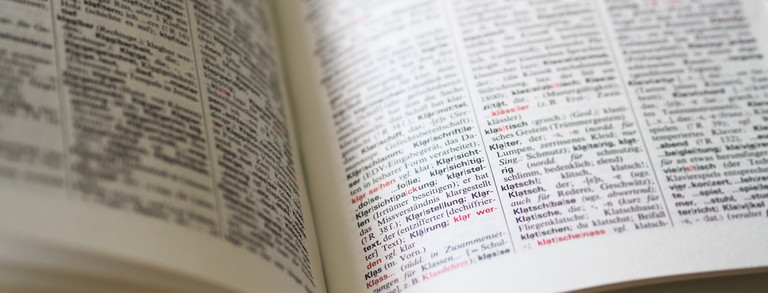Queer (adj.)
The term queer can be used as an umbrella term for all genders and sexual identities that differ from heteronormativity and ⇒ binary ⇒ cisgender identity. In addition, queer is also used as a self-description, for example by people who do not want to define their gender or sexual identity more specifically or are still unsure about their own label. This allows people to express their belonging to the queer community without having to label themselves more precisely.
Queer also refers to an academic discipline, queer studies, which is concerned with the interdisciplinary exploration of topics and fields outside of heteronormativity (Jäkh 2024, p. 9).
The meaning of the word queer translates as strange, peculiar or deviant. Initially, the word was used as an insult for people who were perceived as outsiders or deviating from the norm. At the beginning of the 19th century, however, the more general use shifted and the term became a derogatory term for ⇒ homosexual people, especially gay men (Jones 2023).
Thanks to the tireless fights for equal rights and against discrimination of homosexual people, the meaning of the term has changed. Through processes of appropriation, queer has been reclaimed, reinterpreted and now has largely positive connotations (Queer Lexikon 2017). Deviating from heteronormativity is seen and celebrated as a unifying element within the community. However, there are still people who do not want to use the term as a self-description, as they associate it with hostility and rejection.
Despite the emancipatory battles and constant improvement in the rights and acceptance of queer people, an increase in queerphobia and anti-queer polemics has been observed in recent years. In 2023, the German Federal Criminal Police Office recorded an increase in anti-queer crimes of almost 50% (bpb 2024). This increase can be explained, among other things, by the increase in right-wing ideology (bpb 2024). Anti-queer polemics are also reflected in the use of language. One example is Donald Trump's current efforts to make queer life invisible in the US by banning certain terms (Yourish et al. 2025).
Similar tendencies can also be seen in the German political landscape. Certain politicians who live in homosexual partnerships consciously distance themselves from the term queer and the associated community. By deliberately distancing themselves from the ⇒ LGBTTIAQ+ community and the agitation against queer and especially ⇒ trans* people by right-wing groups threaten political and social achievements and aim to divide society (Eckert 2024).
Last updatet: April 2025
Sources (in German)
- Bundeszentrale für politische Bildung (bpb) (2024): Lagebericht: Queerfeindlichkeit nimmt zu. Last accessed 09.04.2025.
- Eckert, Nora (2024): Absolute Mehrheit für Queerfeindlichkeit. Queer.de. Last accessed 20.03.2025.
- Jäkh, Simeon (2024): Queer Theory/Sexuelle Identität als Forschungsgegenstand. In: Normalisierung von männlicher Homosexualität. BestMasters. Springer VS.
- Jones, Timothy (2023): Reviled, reclaimed and respected: the history of the word ‘queer’. The Conversation. Last accessed 20.03.2025.
- Queer Lexikon (2017): Queer. Last accessed 20.03.2025.
- Yourish, K., Daniel, A., Datar, S., White, I., & Gamio, L. (2025): These words are disappearing in the new Trump administration. The New York Times. Last accessed 09.04.2025.
The glossary is meant to evolve through mutual exchange with readers.
We regularly put the definition of a term up for discussion under #klargestellt. Do you have questions or suggestions? Join the discussion and contribute to a better understanding of the terms! We welcome your feedback to: shk.gleichstellung@verwaltung.tu-dortmund.de






